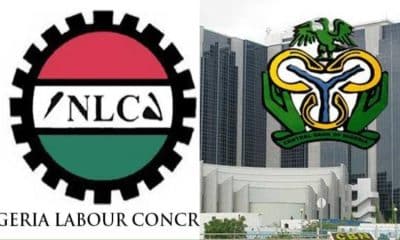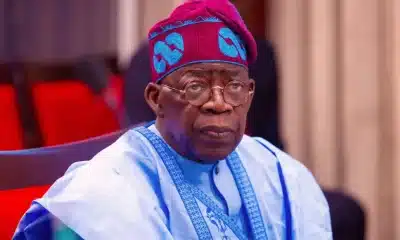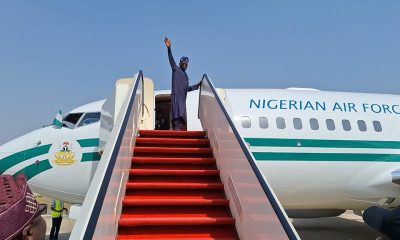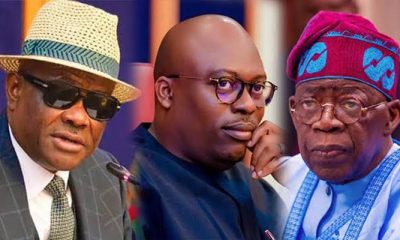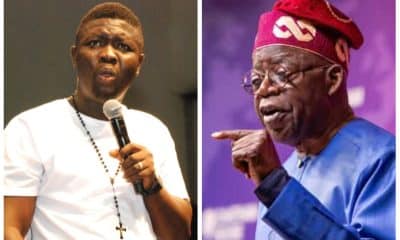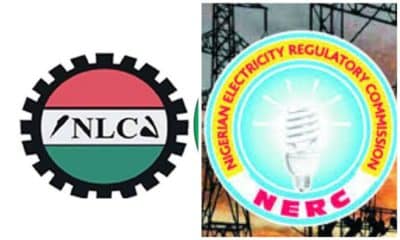Politics
Protest: Ex-APC North West Vice Chairman, Salihu Lukman Knocks NLC, Applauds President Tinubu For Nation’s Address
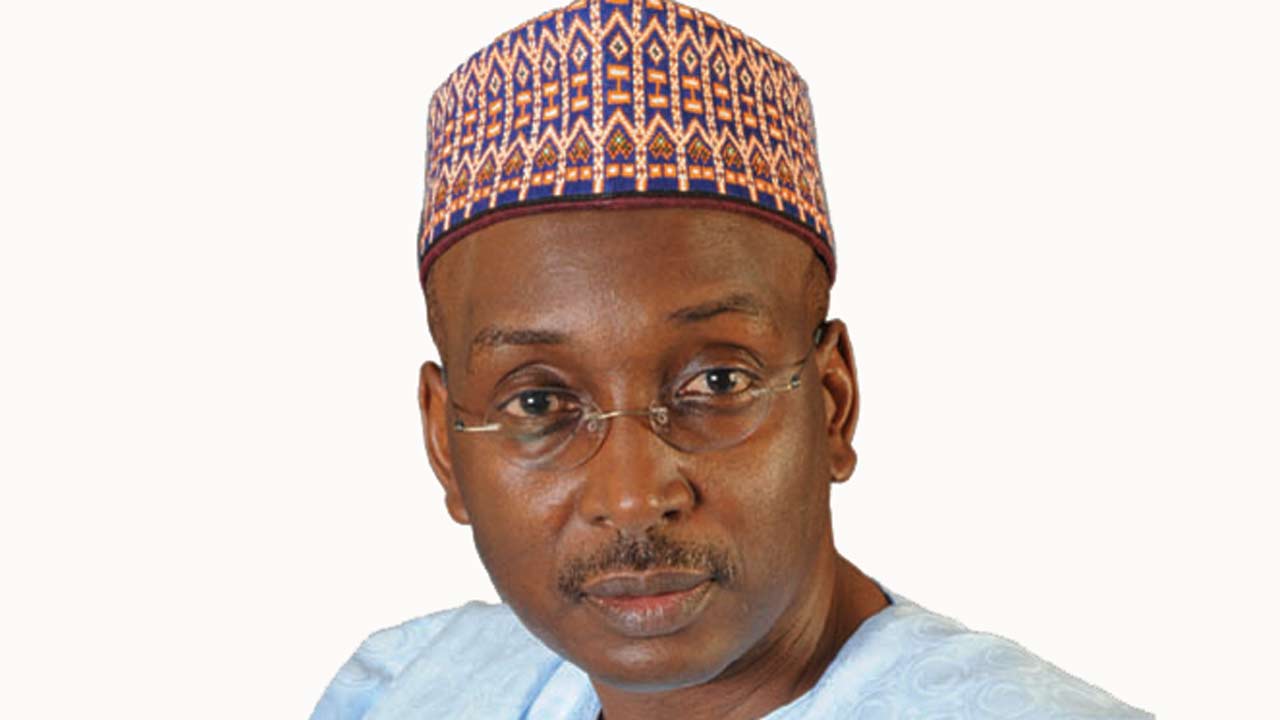
The former national vice chairman (North West) of the All Progressive Congress (APC), Salihu Lukman, has knocked the Nigeria Labour Congress (NLC) over its planned nationwide protest.
Lukman alleged that the NLC was politicizing issues relating to the removal of fuel subsidy in the country.
Naija News learned that the APC chieftain, in a statement titled: “Silver Bullet Politics and Challenges of Democracy,” called on the NLC boss, Mr. Joe Ajaero to rise above the narrow sentiment of playing politics with the subsidy issue.
He insisted that NLC ‘s position on the issue was unacceptable and will not augur well for our democracy.
He affirmed that there are gaps in the government’s proposal of rolling out palliative for the fuel subsidy removal, but applauded President Bola Tinubu for his nation’s address.
He said usually other presidents would wait till after the protest, but he did not despite the hardships confronting Nigerians since the removal of the subsidy regime.
Lukman submitted that “If anything, this confirms that President Asiwaju Tinubu is not in denial and aspire to ensure that his government is responsive.
“Had President Asiwaju Tinubu denied that the withdrawal subsidy has brought hardship to Nigerians and failed proposed measures to address them, the claim that the national broadcast wasn’t the silver bullet Nigerians expected would be justified.
“Were the proposals contained in President Asiwaju Tinubu sufficient to mitigate all the hardships Nigerians are facing? May be not. If not, one would expect the NLC to go a step further to highlight what will be required.
“May be the four issues emphasised in the response of the NLC are the proposed additional issues. These are: repairing our refineries, unmasking those behind the subsidy fraud, not matching public promises with commitment on minimum wage, failure of Federal Government to increase salaries of workers, and promises of palliatives are empty.
“As argued in the past, part of the challenges of finding solutions to Nigeria’s problems, or silver bullet politics as NLC would want us to consider, is the issue of accommodating the diverse interests of Nigerians in designing and implementing policies of government.
”Accommodating the diverse interests of Nigerians is about representation and responsiveness, which is what is required to affirm that ‘sovereignty belongs to the people of Nigeria from whom government through the constitution derives all powers and authority’ and ‘participation by the people in their government shall be ensured in accordance with the provisions of the constitution as provided in section 14 (2) (a and c) of the 1999 Nigerian constitution as amended.
“We must admit that the decision to address the nation represent remarkable progress in the management of contentious public policy in the country. It is indeed required to give life to section 14 (2) (a and c) of the Nigerian constitution.
“In the past, such addresses and proposals contained are only made after protests and strikes. Coming before any strike or protest, it is important; therefore, we encourage the government to take forward all the proposals contained in the address and use them to engage targeted organised groups in the country, including the NLC. For instance, the Federal Government should immediately meet with Organised Private Sector to work out modalities for the implementation and disbursement of the proposed N75 billion aimed at strengthening the manufacturing sector ‘to increase its capacity to expend and create good paying jobs.’
“The engagement should put in place agreed conditions and framework for the selection of the 75 enterprises to access the N1 billion credit. Part of the conditions should include the minimum number of workers to be employed by each of the beneficiary enterprises.
“Similarly, government should also engage organisations of micro, small and medium-sized enterprises to set conditions and framework to access the N125 billion being set aside to energise the sector. Criteria for the selection of the 1 million nano businesses that would access the N50 billion Conditional Grant should be agreed.
“Also, the engagement with organisations of micro, small, and medium-sized enterprises should establish needed criteria for the selection of the 100,000 MSMEs that would access the start-ups Conditional Grant of N75 billion being proposed by government.
“The third category that the federal government should immediately engage is farmers and agricultural associations aimed at putting in place clear framework for the disbursement of 225,000 metric Tonnes of fertilizers. Seedlings and other inputs.
“In addition, the federal government may wish to use the engagement with this group to explore straforgies of achieving the cultivation of 500,000 hectares of farmland and all-year-round farming. Noting that government has earmarked N200 billion from the N500 billion approved by National Assembly, it will be necessary to use the engagement with farmers and agricultural associations to negotiate both ownership and commitment to achieve success.
“The fourth category of groups that should be engaged immediately is transporters aimed at negotiating implementation of proposed investment of N100 billion to acquire 3000 units of buses. Deeper strategic thinking will be required in engaging this category, given that this is the sector that is directly affected by high increases in prices of PMS because of withdrawal of subsidy.
” The goal of engagement with respect to transporters should be to revolutionise the transport sector, which should lead to the rebirth of public transportation in the country. This would require stronger collaboration with state governments, most of whom already have established transport services.
“All these issues were swiftly dismissed by NLC with the cheap claim of a silver bullet, which may reflect the knowledge gap in NLC. Leaders of NLC have historically demonstrated humility in engaging policy issues by opening and developing stronger networks with academic and knowledgeable constituencies. It is possible that NLC response to President Asiwaju Tinubu’s national broadcast did not seek to draw input from some the traditional allies of the NLC.”

